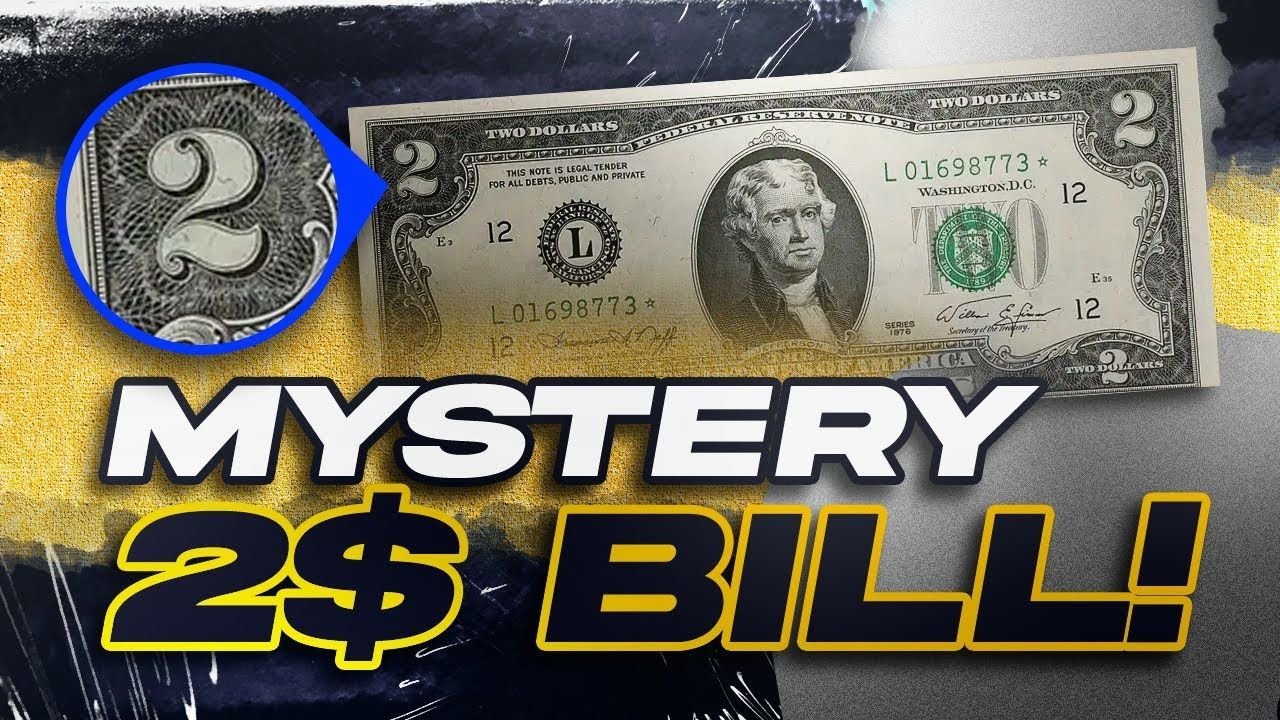A 1976 $2 bill with a rare double print error could be worth up to $55,000, making it a hidden treasure for collectors. These Bicentennial $2 bills, printed to celebrate America’s 200th birthday, are already unique, but a printing mistake makes some worth a fortune. Anyone with $2 bills tucked away might be holding a valuable gem. Here’s how to identify a double print $2 bill and why it’s so special.
What Is a Double Print Error?
A double print error happens when parts of a bill’s design are printed twice, creating a blurry or doubled effect. On the 1976 $2 bill, this error usually affects the black ink on the front, like the serial numbers or the portrait of Thomas Jefferson. The error occurred during printing at the Bureau of Engraving and Printing, and only a small number of these misprinted bills made it into circulation. This rarity makes them highly valuable to collectors.
How to Identify the Double Print
To spot a double print $2 bill, check the front of the 1976 Bicentennial $2 note. Look for blurry or doubled images in the black ink areas, such as the serial numbers, the Treasury seal, or Jefferson’s portrait. The back, featuring the Declaration of Independence signing, is usually unaffected. Hold the bill to light to confirm it’s real, checking for a security thread and watermark (though 1976 bills may lack some modern features). The table below lists what to check:
| Feature | What to Look For |
|---|---|
| Serial Numbers | Blurry or doubled appearance |
| Portrait/Seal | Black ink shows doubling or smudging |
Why Are These Bills So Valuable?
Double print $2 bills are prized because printing errors are rare, especially on the 1976 Bicentennial series, which was a special run. Collectors love these bills for their unique look and historical significance. Auction records show that double print $2 bills have sold for $30,000 to $55,000, depending on condition. Bills in crisp, uncirculated condition fetch the most, but even used ones can be worth thousands due to their scarcity and appeal.
Where to Find These Bills
You might find a double print $2 bill in old cash stashes, family collections, or even as change, since $2 bills are still in circulation. The 1976 series is easy to spot because of its unique back design showing the Declaration signing. Check any $2 bills from that year closely for doubling in the black ink. The table below highlights key details:
| Series Year | Denomination | Error Type |
|---|---|---|
| 1976 | $2 | Double Print |
| 1976 | $2 | Black Ink Doubling |
What to Do If You Find One
If you think you have a double print $2 bill, don’t spend it. Reach out to a reputable currency dealer or auction house, like Heritage Auctions or Stack’s Bowers, to verify its authenticity. Professional grading services like PMG or PCGS Currency can evaluate its condition, which can boost its value. Store the bill in a protective sleeve to keep it safe. With luck, your $2 bill could be worth thousands, turning a small piece of change into a collector’s prize.
